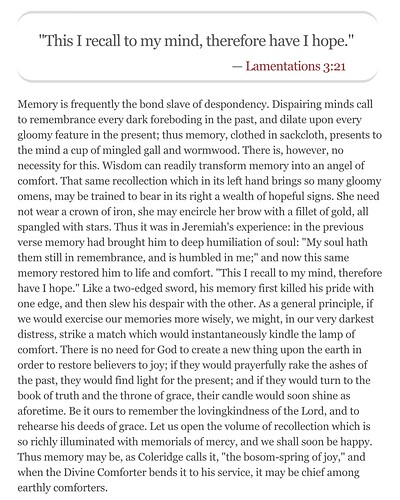Memory is frequently the bond slave of despondency.
Wisdom can readily transform memory into an angel of comfort.
C.H. Spurgeon
…if they would prayerfully rake the ashes of the past, they would find light for the present
Nice metaphor.
…rehearse his deeds of grace.
It’s about God’s providence, in your life and others’.
